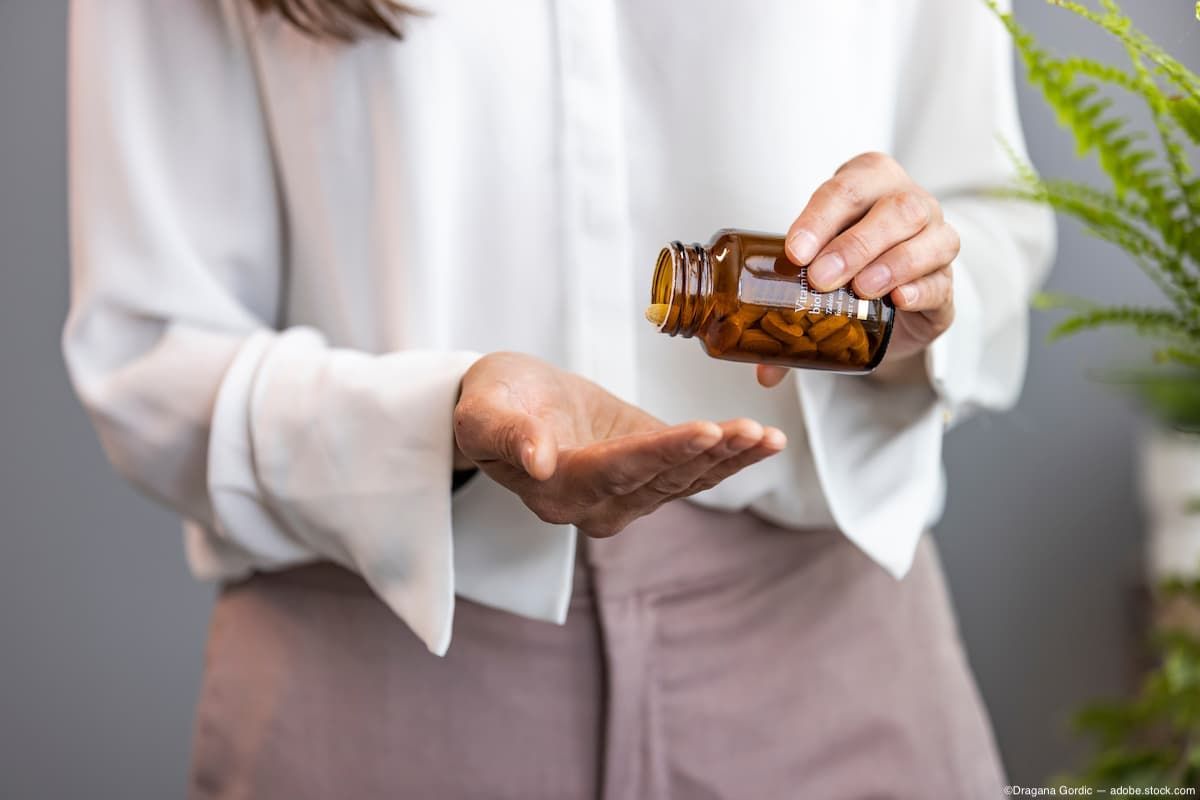Study reports statistically significant improvements of DED symptoms with Bausch + Lomb’s LCD supplement
The nutritional supplement comprised of a proprietary blend of lutein, zeaxanthin isomers, curcumin, and vitamin D3 improved tear production, tear film break-up time, and tear osmolarity, among others.
Image Credit: AdobeStock/DraganaGordic

Bausch and Lomb announced that its proprietary blend of lutein, zeaxanthin isomers, curcumin, and vitamin D3 (LCD) received statistically significant results from a clinical study published in Frontiers in Ophthalmology, according to a news release. The prospective, randomized, double-blind, parallel, placebo-controlled study evaluated the efficacy and safety of the novel daily nutritional supplement formulated to address the symptoms of dry eye disease (DED). The primary endpoints were the change in tear production and participant reports of DED symptoms at day 56 of the trial.1
“More than 150 million people experience dry eyes in the U.S.,” said Yehia Hashad, M.D., executive vice president, Research & Development and chief medical officer, Bausch + Lomb. “We believe Blink NutriTears will offer a novel nutritional option that can provide dry eye symptom relief in as little as two to four weeks.”
The study included 155 participants with mild dry eye symptoms, who were randomized to receive 1 LCD supplement or placebo capsule for 8 weeks. Participants were also allowed to use artificial tears during the trial. For the trial’s endpoints, significant improvements were found in tear production, as measure by Schirmer’s test scores from baseline, as well as significant improvement from baseline for OSDI scores by day 14.1 “LCD supplementation could offer a useful adjunct to artificial tears for patients with DED,” the authors of the study, led by Neda Gioia, OD, CNS, wrote.2
Additionally, the trial’s secondary endpoints were met with significantly improvement of tear production, tear film break-up time, ocular surface staining, tear osmolarity, ocular surface health, and presence of an inflammatory marker. Participant-reported DED symptoms were assessed by a SPEED questionare in the first 14 days of the trial. Additionally, no serious adverse events were reported during the study period.1
“These data suggest consumption of this new once-daily nutritional supplement may help restore tear film homeostasis by addressing the key root causes of dry eyes,” said Gioia, founder of Integrative Vision and president of the Ocular Wellness & Nutrition Society, in the release. “This could represent a significant opportunity for consumers looking for options when it comes to long-lasting dry eye symptom relief.”
The authors recommended a longer-term follow-up study, “which would provide valuable insight into the potential for sustained benefits, which is particularly relevant in the context of the chronic nature of DED.” A larger participant population and assessing the impact on ocular lubricant beyond artificial tears was also recommended.2
Bausch + Lomb is expecting to launch the supplement early in the third quarter of 2024 in the US under the brand name Blink NutriTears.1
References:
Bausch + Lomb announces statistically significant results from a clinical study of a novel daily nutritional supplement for dry eyes. News release. Bausch + Lomb. April 25, 2024. Accessed April 25, 2024. https://www.bausch.com/news/?id=206
Gioia N, Gerson J, Ryan R, et al. A novel multi-ingredient supplement significantly improves ocular symptom severity and tear production in patients with dry eye disease: Results from a randomized, placebo-controlled clinical trial. Front Ophthalmol. 2024 April:4. https://doi.org/10.3389/fopht.2024.1362113
Newsletter
Want more insights like this? Subscribe to Optometry Times and get clinical pearls and practice tips delivered straight to your inbox.